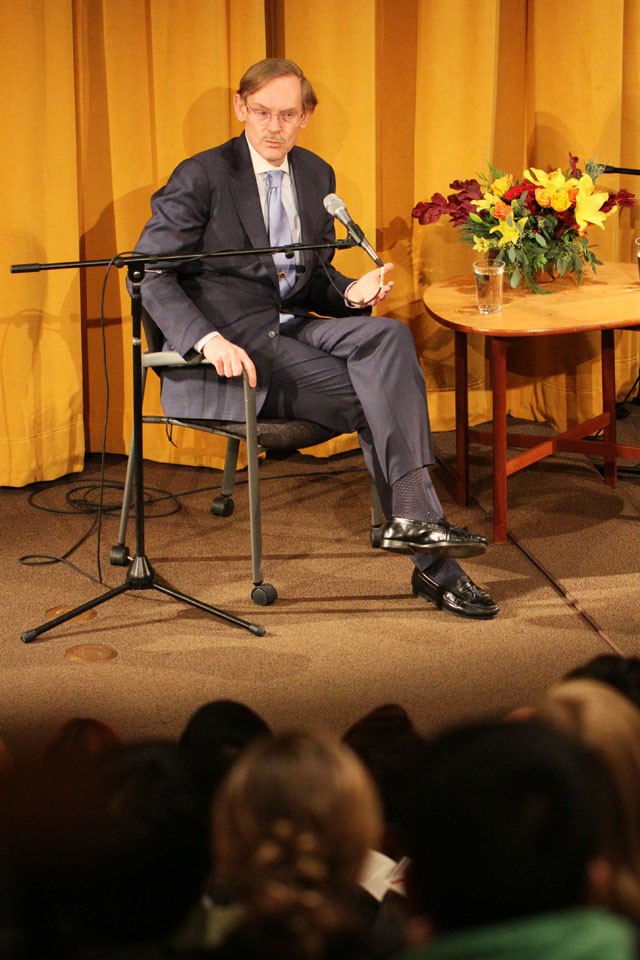World Bank Group President Robert Zoellick covered everything from WikiLeaks to endangered tigers at a Humphrey Institute of Public Affairs forum Wednesday.
An audience of more than 250 people crowded into Cowles Auditorium to hear Zoellick discuss challenges facing international economics.
Vin Weber, a senior fellow at the Humphrey Institute at the University of Minnesota and a partner at a consulting firm in Washington, D.C., has worked closely with Zoellick. He was the primary initiator of the event, which he also moderated.
Weber said Zoellick is “one of the leading thinkers on foreign policy in the U.S.,” and the visit is important to the Humphrey Institute, which is internationally recognized for its work in public issues.
Zoellick said his visit was an opportunity to talk to the community about the World Bank.
“People âĦ want to have a sense of how it all fits together,” he said.
After a brief introduction by Humphrey Institute Dean Brian Atwood, Weber held a short one-on-one conversation with Zoellick about basic functions of the bank and its role in international economics.
Zoellick spoke at length about the role of developing countries in economic recovery, and said 50 percent of economic growth comes from developing countries. He called them a “stabilizing force.”
“People used to think of development as north-south, but itâÄôs becoming more of a south-south interaction,” he said.
The conversation was followed by a question-and-answer session. The audience was interested in a range of topics, such as ZoellickâÄôs thoughts on international trends and the relationship between politics and economics.
Zoellick said he enjoys the interactive format because it allows him to “hear what people are thinking.” He emphasized the importance of government and societal transparency.
“Development needs to come from the society itself,” he said. “Open societies move the world toward economic development.”
Maria Loomis, a University sophomore, and junior Erin Cowles said they enjoyed the event and gained a deeper understanding of the World Bank.
“ItâÄôs an honor to have the president of the World Bank here,” Loomis said.
However, both felt the event could have been better advertised and held at a larger venue, as not everyone who wished to attend got seated.
Cowles said sheâÄôd like to see a “better connection” between the Humphrey Institute and the undergraduate community. The event could have benefited many students, she said, but they did not hear about it.
Jeff Schmedeke, a recent Humphrey Institute graduate, said he was hoping Zoellick would talk more about the “leadership” the World Bank will take in the international economic revival.
“Recovery is tenuous at best,” Schmedeke said, “and leadership is reassuring.”








